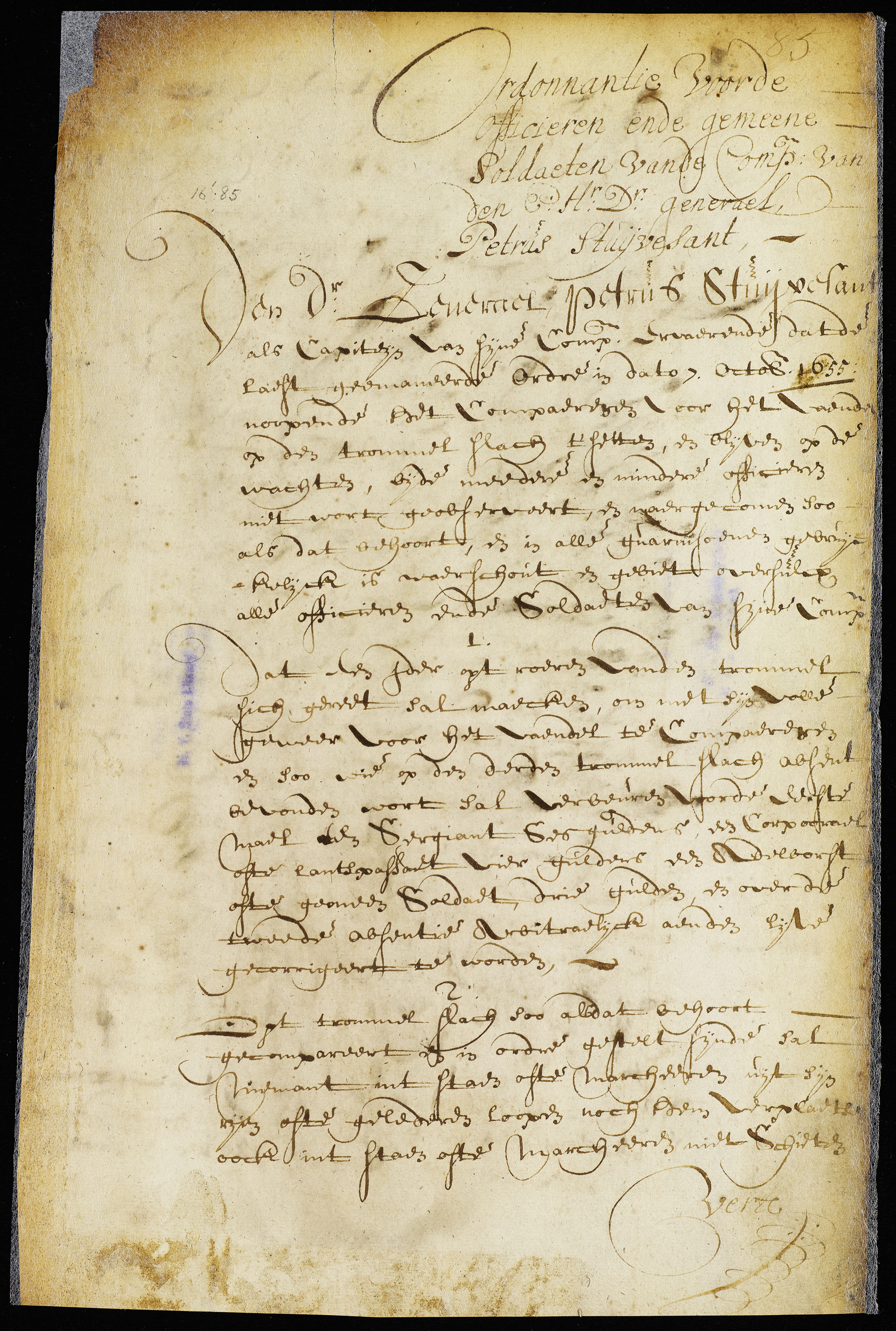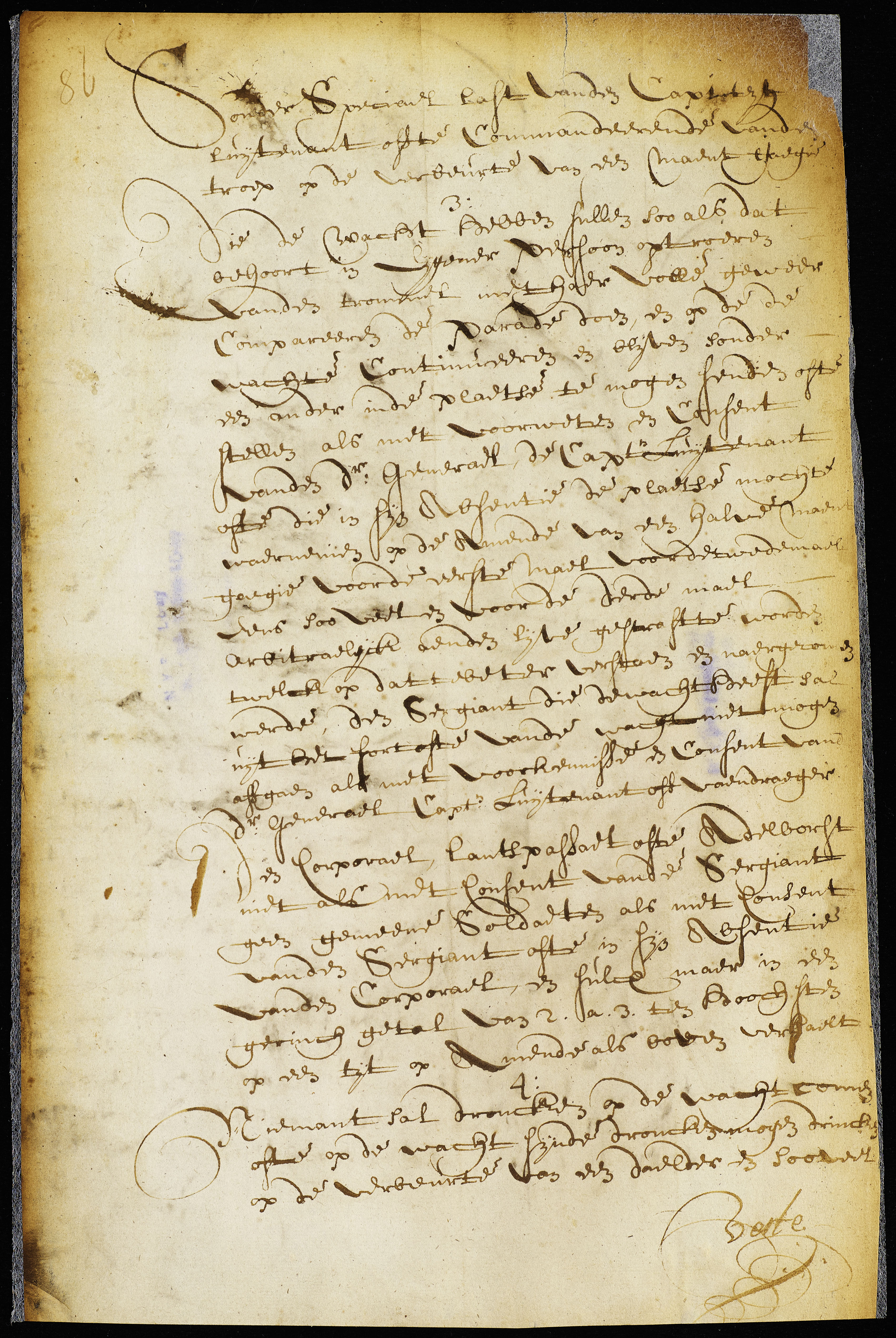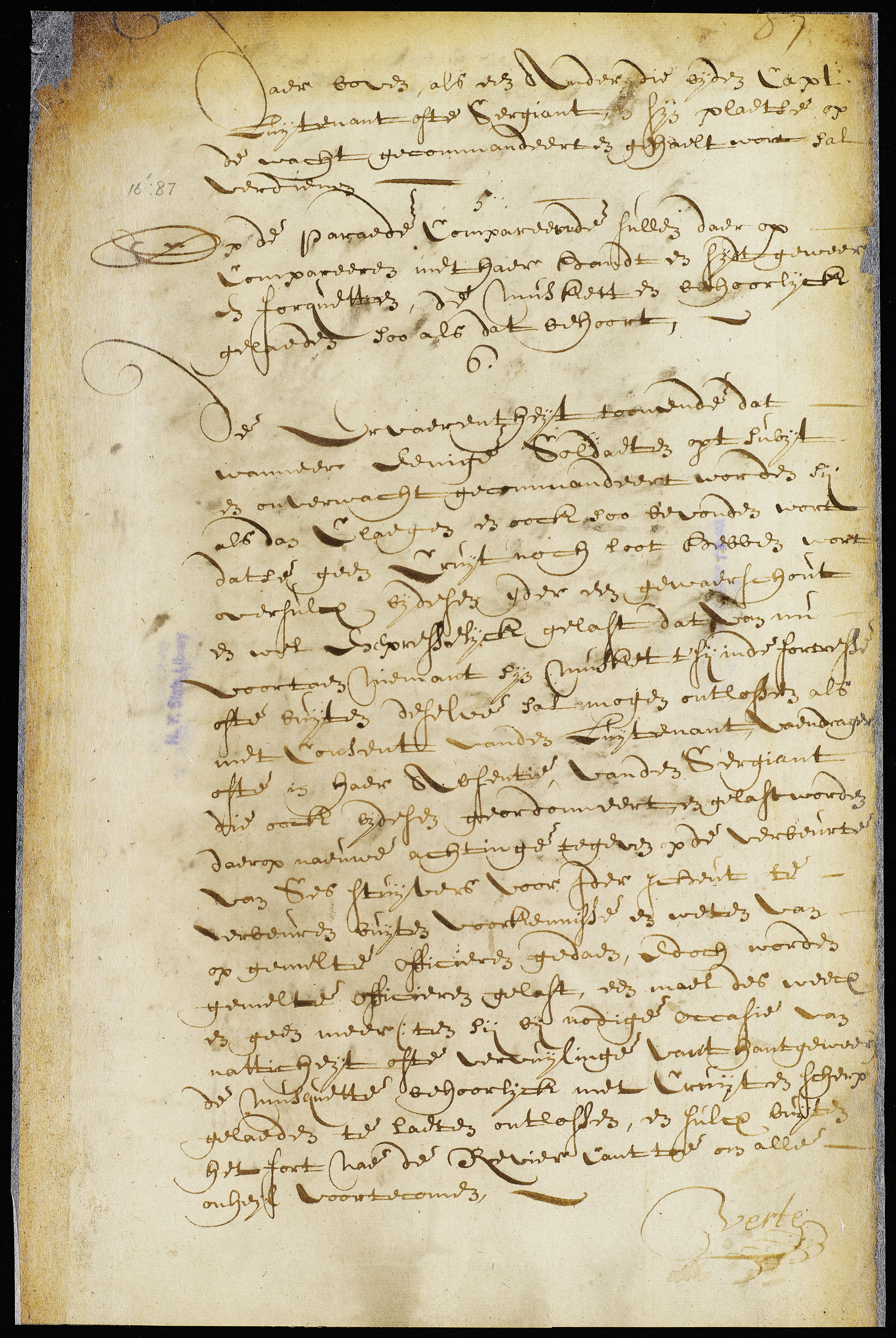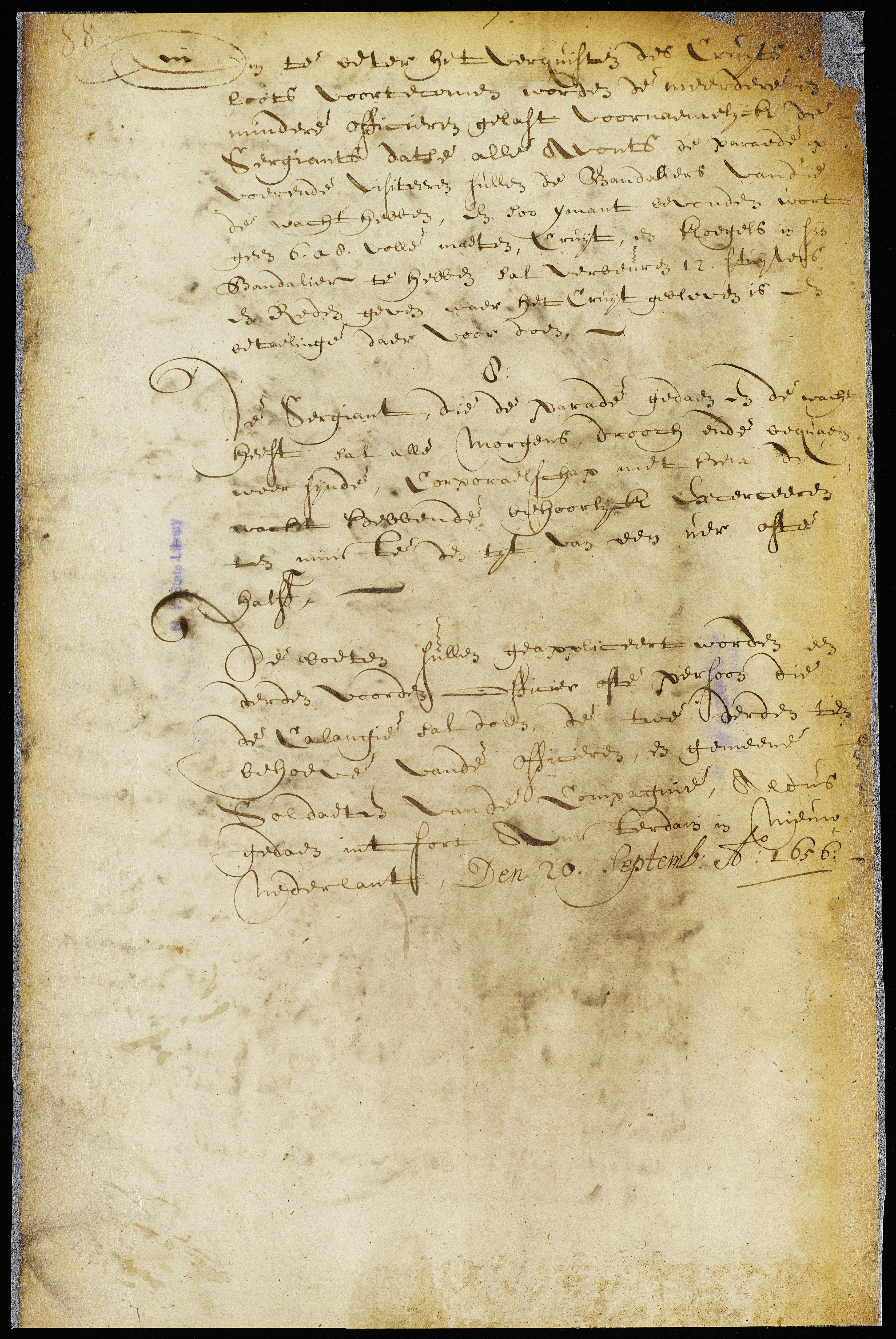Ordinance for the officers and common soldiers of the company of the honorable lord director general, Petrus Stuyvesant.
The director general, Petrus Stuyvesant, as captain of his company, observing that the last issued order, dated 7 October 1655, concerning the appearance before the colors at the beat of the drum, and the posting of and remaining on guard, is not observed and obeyed by the superior and inferior officers as it ought to be, and as is customary in all garrisons; therefore, notifies and commands all officers and soldiers of his company:
1.
That everyone shall, on the roll of the drum, make himself ready to appear fully armed before the colors, and if anyone shall be found absent at the third beat of the drum, he shall forfeit for the first time, as a sergeant six guilders, a corporal or lance corporal four guilders, a cadet or common soldier three guilders; and for die second absence, he shall suffer arbitrary corporal punishment.
2.
Having appeared and entered ranks at the beat of the drum, in proper fashion, no one shall step out of rank or file while standing or marching, or be replaced; also, not discharge his weapon while standing or marching, without the express order from the captain lieutenant of the unit, on pain of forfeiting one month’s pay.
3.
Those who have guard duty shall, in proper fashion, appear in their own person fully armed at the beat of the drum, perform parade, and continue and remain on guard without being allowed to accept another as replacement, unless with the knowledge and consent of the director general, the captain lieutenant or whomsoever may assume these positions in his absence, on penalty of a half month’s pay for the first time, twice as much for the second time, and for the third time an arbitrary corporal punishment. In order that this may be better understood and obeyed, the sergeant of the guard shall not be allowed to leave the fort or the guard except with the previous knowledge and consent of the director general, captain lieutenant or ensign; the corporal, lance corporal or cadet except with consent of the sergeant; no common soldier except with consent of the sergeant, or in his absence, of the corporal, and then only in a small number of two to three at the most at one time, upon penalty as stated above.
4.
No one shall come to guard duty drunk or be allowed to drink while standing guard, on penalty of one daelder and as much more as a replacement shall earn who is commanded and brought in his place to the guard by the captain lieutenant or sergeant.
5.
When appearing for parade, they shall appear with their hand and side weapons, and musket rests; with their muskets properly loaded, as in duty bound.
6.
With experience showing that whenever some soldiers are suddenly and unexpectedly commanded to duty, they then complain, and it is also found, that they have no powder or lead; therefore, everyone is hereby notified and expressly ordered henceforth not to discharge his musket either within or outside the fort, except by consent of the lieutenant, ensign or in their absence, of the sergeant, who is hereby ordered and commanded to pay strict attention to it, on pain of forfeiting six stivers for each shot fired without the previous knowledge and awareness of the aforesaid officers; once a week and no more (unless otherwise required because of dampness or foulness of the small arms) the muskets are to be properly loaded with powder and shot and discharged outside the fort along the river's edge, in order to prevent any mishap.
7.
In order the better to prevent the waste of powder and lead, the superior and lesser officers, in particular the sergeants, are ordered every evening at parade to inspect the bandoleers of those having guard duty, and if anyone is found not to have in his bandoleer 6 to 8 full measures of powder and ball, he shall forfeit 12 stivers, and explain where the powder has gone and pay for it.
8.
The sergeant in charge of the parade and the guard shall every morning, whenever the weather is dry and suitable, properly drill the soldiers and the guard detail at least for one hour or half an hour.
The fines shall be applied, one third to the officer or person making the complaint, two thirds to the benefit of the officers and common soldiers of the company.
Thus done at Fort Amsterdam in New Netherland, the 20th of September 1656.[1]





